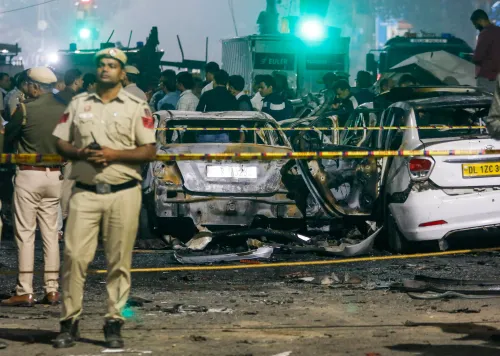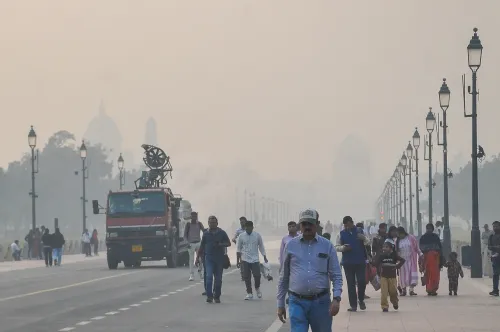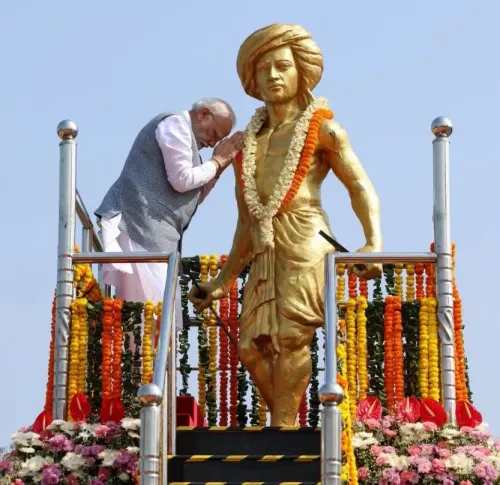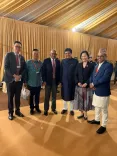Is the Rajasthan Government Protecting an Expelled MLA's Membership?
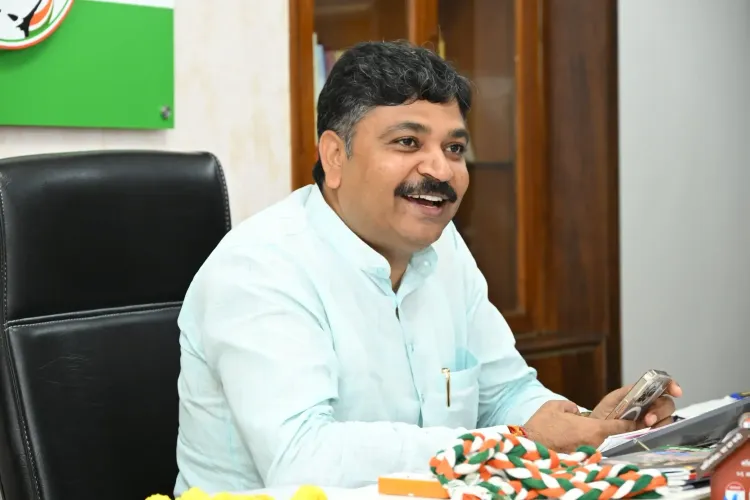
Synopsis
Key Takeaways
- Tika Ram Jully opposes the state government's actions regarding Kanwarlal.
- Article 161 is being misused for political gains.
- Concerns about political integrity and public trust are prominent.
- Jully has taken formal steps to reject Kanwarlal's pardon.
- This situation highlights the ongoing struggle between politics and justice.
Jaipur, Sep 29 (NationPress) Tika Ram Jully, the Leader of the Opposition in the Rajasthan Legislative Assembly, criticized the state government's actions in trying to maintain the membership of Kanwarlal, who was expelled from the Assembly. He termed it unethical and an improper manipulation of constitutional provisions for political gain.
Jully pointed out that Kanwarlal, elected from Anta under the Bharatiya Janata Party's banner, was sentenced to three years in prison by a subordinate court. This sentence was later upheld by both the High Court and the Supreme Court, leading to the termination of the MLA's membership by the Speaker of the Assembly on May 1, 2025.
“Since May 21, 2025, Kanwarlal has been incarcerated for over four months. Yet, the BJP state government, leveraging its influence, has improperly invoked the powers granted to the Governor under Article 161 of the Constitution. They have submitted a petition for Kanwarlal's sentence remission, along with their recommendation,” stated Jully.
He expressed his disappointment that the justification for the remission includes Kanwarlal's involvement in blood donation camps, Tiranga Yatras, and other social initiatives.
Jully has formally requested the Governor to dismiss Kanwarlal's pardon.
Furthermore, the Rajasthan Opposition Leader has submitted a memorandum to the President, urging the dismissal of the request made to the Governor. He has also reached out to Prime Minister Modi and the Union Home Minister, providing them with factual details regarding the case.
Jully explained that under Article 161 of the Indian Constitution, the Governor has the authority to commute or pardon sentences imposed by the courts. However, the Constitution intended for such pardons to primarily apply to severe punishments, like converting a death sentence into life imprisonment or reducing life terms.
He highlighted the irony that while the BJP-led Central government is pushing for legislation that would oust a criminal from ministerial or chief ministerial roles if they remain incarcerated for more than a month, the same party’s state government is attempting to pardon or reduce the sentence of a repeat offender with 27 cases against him.
Jully questioned, “What message are we conveying to society? What implications does the presence of such representatives hold for the public? What example do those espousing political integrity wish to set? This is a significant concern as it could foster negative societal tendencies. Any political leader could feel invulnerable, believing that any wrongdoings would eventually be pardoned for political reasons.”
Jully reiterated his appeal through letters, urging constitutional dignitaries to reject the pardon petition to uphold political integrity and deter the influence of individuals with criminal backgrounds in politics, thereby preserving the state's esteemed political tradition.

